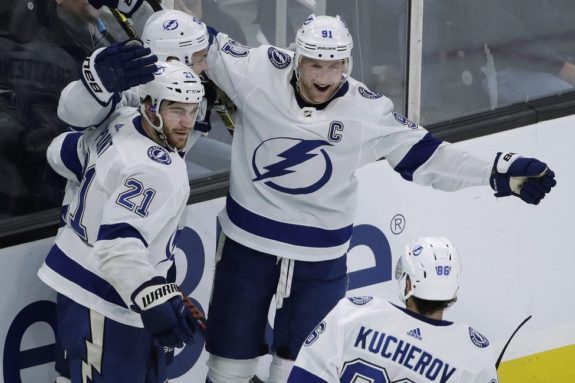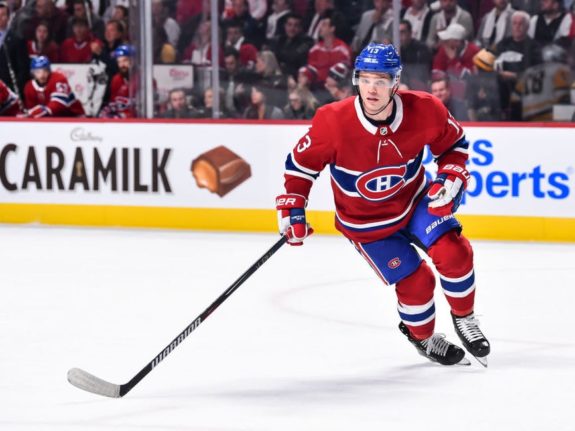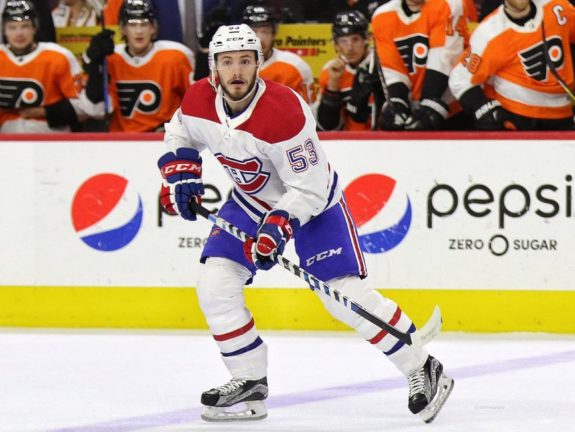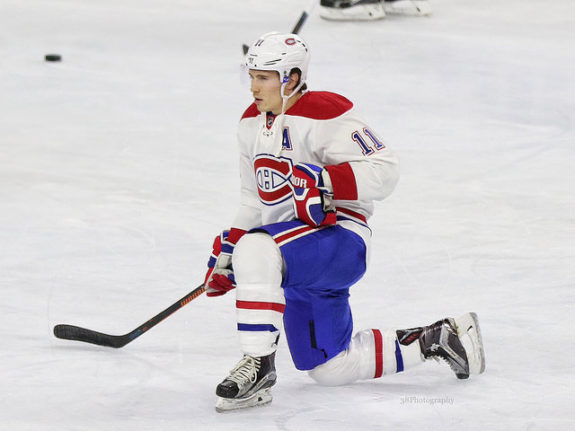NHL teams are finally starting to gain a rhythm and routine early on in this NHL season. Some have been bad, some have been good, but as we saw with the St. Louis Blues last season (last in the NHL on Jan. 1), the first few months of the season really aren’t all that important.
While clubs are generally more concerned with their on-ice play and developing chemistry this early into the year, it’s always interesting to take a step back and investigate the bigger picture. A team’s salary cap/contract situation is always fun to look into by playing around with the possibilities and trying to project how a team can be successful under the $81.5 million salary cap.
The Ottawa Senators, for example, won’t even sniff that total for years to come, and their focus is simply getting to the cap floor ($60.2 million). Then there are “cap-strapped” teams like the Toronto Maple Leafs and Tampa Bay Lightning who must get creative every season to fit all their players under the cap, given the massive cap hits they carry on just a few players.

The Montreal Canadiens fall somewhere in between. They currently have $6.39 million in cap space, and this may seem like an opportunity to venture out and acquire more talent. But, upon a further glance at the roster, the Habs have a few big contracts to renew this offseason, and a few more important ones just two years down the line.
Though most of the core is intact for at least two more seasons, general manager Marc Bergevin may want to start negotiating the deals for a few of those players up for a new contract in two years time. Besides, the contracts would be based on their play so far, and with the cap set to go up in two years time, the Canadiens could be inclined to sign some team-friendly deals in advance.
Max Domi
Arguably the most important factor in the Canadiens’ success, Domi had a career year upon his arrival in Montreal last season. He’s the first Canadiens’ player to crack the 70-point mark since Tomas Plekanec accomplished that feat back in 2009-10. Many fans were outraged at the trade that brought him here, sending 2012 third-overall pick Alex Galchenyuk to the Arizona Coyotes in a one-for-one swap.
Domi had only scored nine goals in his last season with the Coyotes, including four of them by way of an empty net. Naturally, fans were skeptical, but Domi had other plans for his career once he was thrust into the hockey-crazed Montreal. Bergevin was banking on Domi recreating the 52-point performance from his rookie year in Arizona, and that hunch paid off in spades.

Domi’s off to another hot start with nine points in as many games so far this season. While his defensive play is nothing to write home about, his offensive prowess cannot be ignored. He also transitioned to the center-ice position seamlessly, something that Jonathan Drouin was unable to do when he first arrived. Domi is a versatile player with a mean streak to him, something the team desperately needs especially with the departure of Andrew Shaw. Bergevin would be very wise to try and sign Domi during the season to avoid a possible holdout like we saw with so many talented restricted free agents this past offseason. He currently makes $3.15 million and is surely due for a big raise.
As for comparable contracts, look to Matthew Tkachuk of the Calgary Flames (three years, $7 million cap hit) if they want to do more of a bridge deal, or Jeff Skinner of the Buffalo Sabres (eight years, $9 million cap hit) should they give Domi a longer-term contract. I would be inclined to go for the maximum amount of years simply because he’s a great player who’s young and shows no signs of slowing down. Besides, it’s tough enough to get star players to come to Montreal and stay. Given Domi’s comments this offseason, I think he’d jump at the chance to sign for seven or eight years.
Victor Mete
Making the jump to the NHL in his first professional training camp at 19 years of age, Mete seems like the perfect complement to Shea Weber: he’s fast, moves the puck well, and is a left shot. This has been his assignment for his first two seasons in Montreal, and for a young man who didn’t get much of any seasoning in the American Hockey League (albeit briefly last season), he’s done a good job.

Yet the issue with Mete is that he always leaves you wanting a bit more. While he’s got all the tools to be an offensive defenceman, the numbers just don’t support it. It took him 129 games to score his first NHL goal, and his combined 20 assists in his first two NHL seasons don’t exactly scream Bobby Orr.
He’s a decent possession player, averaging a Corsi for percentage (CF%) of 50.8 since arriving to the Habs out of junior. But it’s the way he miraculously made the team out of training camp and can show flashes of brilliance with his skating and passing ability that has fans clamoring for more. He reminds many people of the Boston Bruins’ Torey Krug with the way he looks, skates, and carries himself on the ice, but he’s yet to establish himself as a true offensive threat ala Krug.
Determining Mete’s next contract (restricted free agent at season’s end), is a conundrum, seeing as he does play on the No. 1 pairing, but hasn’t put up the numbers to support big money. Mete is the perfect candidate to sign a “prove it” contract this offseason, because giving him too many years could backfire on Montreal if he doesn’t take a step forward with his play.
A similar player to Mete, the Columbus Blue Jackets’ Ryan Murray is a great contract comparable. After his entry-level deal, Murray signed a two-year $5.65-million deal to show what he could do. While he didn’t opt for a longer-term deal after that, look for Mete to sign a similar contract coming out of his entry-level deal with the Habs.
Brendan Gallagher
The heart and soul of the Montreal Canadiens, Gallagher is every coach’s dream player. He never takes a shift off, he’s relentless in the way he plays, and he’s a two time 30-goal scorer who constantly leads his team in that category. Early in his career, many critics said Gallagher wouldn’t last in the league for very long because of the way he plays at his size. Yet in this his eighth NHL season, Gallagher has silenced those critics, and even has an iron-man streak going currently at 173 games.

His current contract (6 years, $3.75-million cap hit) is seen as one of the best bargain contracts in the entire league, given his numbers and what he brings to the Habs every single night. His current contract was a major coup for Bergevin, although in two years’ time, he’s going to have to re-negotiate a major raise for his diminutive right-winger. The toughest part of this will be to determine how many years to give Gallagher – he’ll be 29 when he’s due for his next contract and while it may be tempting to simply give him the maximum because of his past play, Montreal may not be wise to do so.
The NHL is all about speed these days, and Gallagher has never been the most fleet of foot. His hand has been broken twice already in his young career, and while he’s proven he can handle the rigors given his style of play, this isn’t to say it’s not forever. If Gallagher loses a step and perhaps injures his same hand again, he may not be the same player worth what he might get on his next contract.
While it’s tough to live in this world of the hypothetical, Bergevin may be wise to try and offer Gallagher a little more money on a shorter-term deal. Yet given his current bargain price, Gallagher may be more inclined to ask for both money and term. It will certainly be very interesting in two-years time to see what happens, given that Gallagher is already at a point-per-game pace nine games into this season.